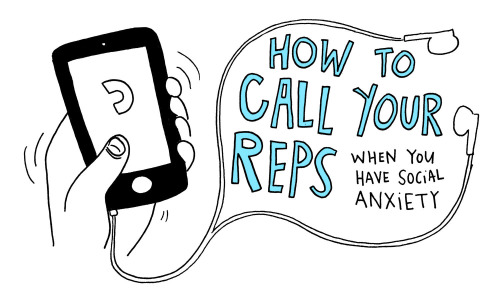
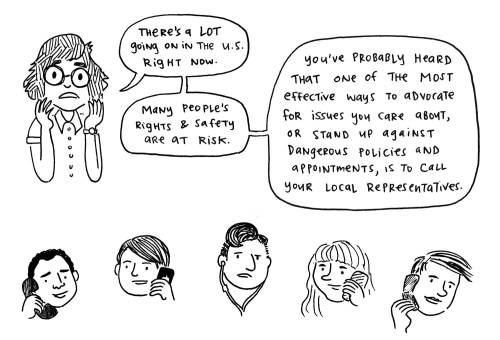
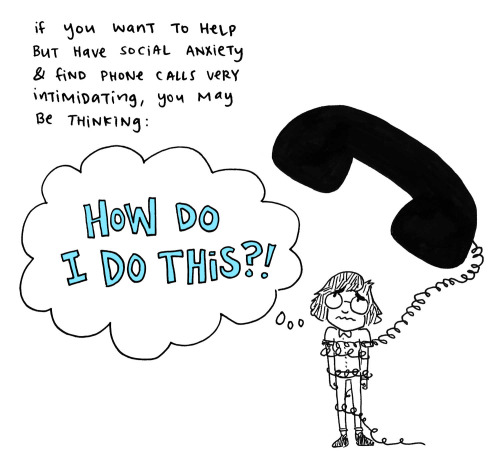
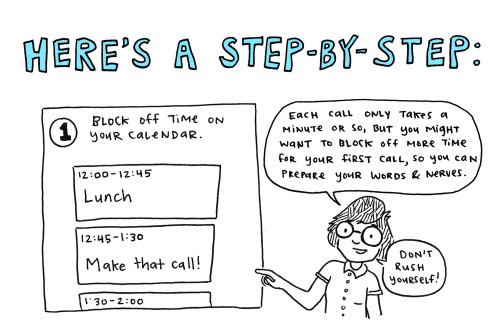
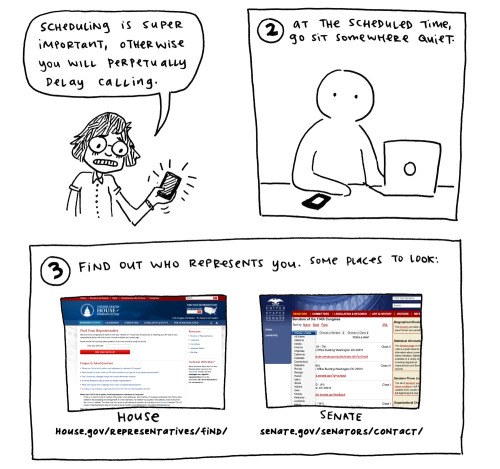
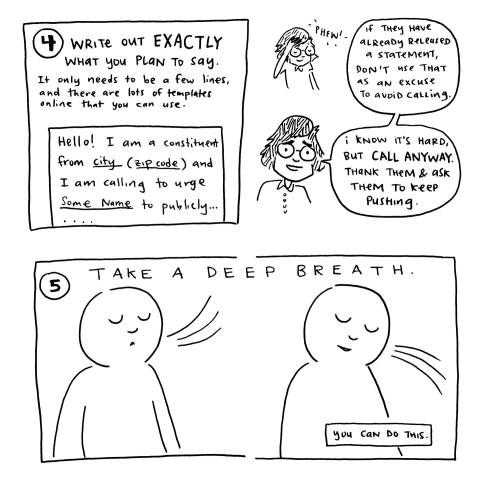
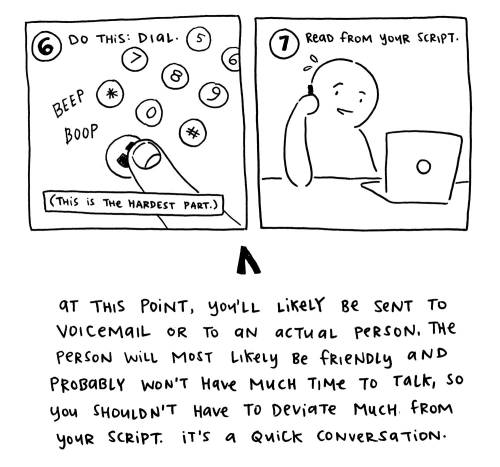
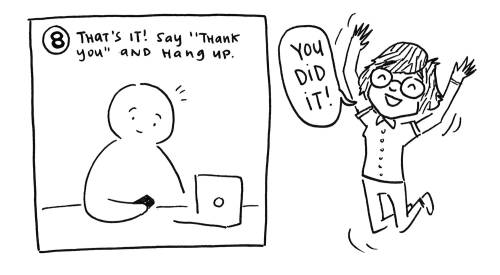

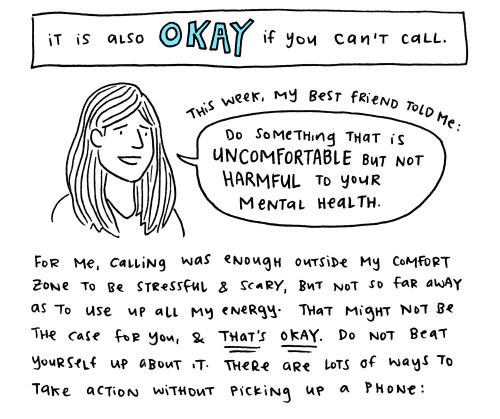

“How to call your reps when you have social anxiety”
There’s a LOT going on in the U.S. right now. The civil rights and safety of many groups are at risk at the moment. You’ve probably heard that one of the most effective ways to advocate for issues you care about, or stand up against dangerous policies and appointments, is to call your local representatives.
If you want to help but have social anxiety and find phone calls very intimidating, you may be thinking, “How do I do this?!” (An over-sized telephone handset hovers ominously over the narrator with its cord spiraling around her body. She looks up at it with great concern.)
Here’s a step-by-step:
- Block off time on your calendar. Each call only takes a minute or so, but you might want to block off more time for your first call, so you can prepare your words & nerves. Don’t rush yourself! Scheduling is super important, otherwise you will perpetually delay calling.
- At the scheduled time, go sit somewhere quiet.
- Find out who represents you. Some places to look: House (http://www.house.gov/representatives/find/) and Senate (http://www.senate.gov/senators/contact/).
- Write out exactly what you plan to say. It only needs to be a few lines, and there are lots of templates online that you can use. e.g. “Hello! I am constituent from city (zip code) and I am calling to urge Some Name to publicly…” If they have already released a statement, don’t use that as an excuse to avoid calling. I know it’s hard, but call anyway. Thank them and ask them to keep pushing.
- Take a deep breath. You can do this.
- Do this: dial. (This is the hardest part.)
- Read from your script. At this point, you’ll likely be sent to voicemail or to an actual person. The person will most likely be friendly and probably won’t have much time to talk, so you shouldn’t have to deviate much from your script. It’s a quick conversation.
- That’s it! Say “Thank you” and hang up.
You did it! If you’re thinking “Hey, that wasn’t so bad…”, call more people! And follow up with them next week, or even tomorrow, to make sure they keep these issues top of mind.
It is okay if your voice shakes. It is okay if you feel awkward.They get a lot of calls, so they don’t have time to judge you by how well you delivered your message. It is also okay if you can’t call.
This week, my best friend told me, “Do something that is uncomfortable but not harmful to your mental health.” For me, calling was enough outside my comfort zone to be stressful and scary, but not so far away as to use up all my energy. That might not be the case for you, and that’s okay. Do not beat yourself up about it.
There are lots of ways to take action without picking up a phone:
- Write to government officials, One great tool is Resistbot-- a free service that turns your texts into a formal letter, and then faxes it to your elected officials. You'll get a copy of the letter, and a notification when the fax goes through. Although it takes its name from the idea of “resisting” the current administration, it’s a straightforward tool that you can use to voice your opinions, no matter what they are.
- Create art that challenges and art that inspires
- Donate, if you’re financially able, to organizations that fight injustice
- Listen to immigrants, people of color, women, trans and non-binary people, people of all faiths and orientations, and people with disabilities. Support their work. Amplify their voices.
- Keep it up.
And here are some resources:
- Phone calls are still the most direct way to get a staffer’s ear, but this text-to-fax service has a few advantages on your end: you can speak up any time, the bot will keep trying if the lines are busy, and you don’t have to work up the nerve to talk to a stranger. Some members of Congress still have actual fax machines, while others will receive your message as a sort of glorified email. Either way, if your contact information is on the letter, it will be counted along with other messages from constituents.
- Emily Ellsworth explains why calling is the most effective way to reach your congressperson.
- Sharon Wong posted a great series of tweets that helped me manage my phone anxiety and make some calls.
- Kelsey is tweeting pretty much daily with advice and reminders about calling representatives. I found this tweet an especially great reminder that calls aren’t nearly as big a deal as anxiety makes them out to be.
There are a lot of these, as well! These three are good places to start:
Find your representative at house.gov
Find your senators at senate.gov
Use the “We’re His Problem Now” scripts when calling
No comments:
Post a Comment